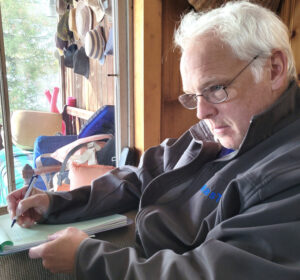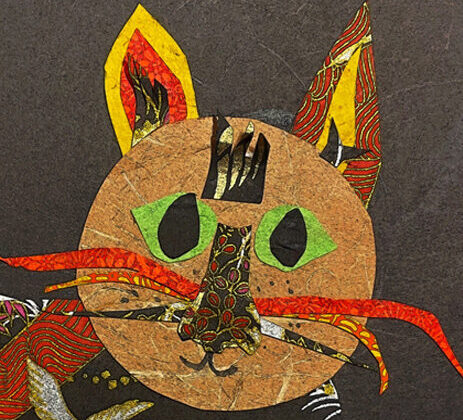About This Issue’s Haibun Guest Editor

Peter Newton is the author of several books in the Japanese short form tradition, including What We Find (haiku); Welcome to the Joy Ride (haibun), which won a 2014 Merit Book Award for Best Book of Haibun from the Haiku Society of America; A Path of Desire (tan renga with Kathe L. Palka); The Searchable World (haiku), which won First Place in the 2018 Merit Book Awards from the Haiku Society of America; and the space we open to (haiku). He also has two forthcoming books: Part-Time Gods (haibun), winner of the 2021 Snapshot Press eChapbook Award, and Glide Path (haiku). Both are due to be published in 2022.
He has spent more than thirty summers as a staff member of The Bread Loaf School of English at Middlebury College and The Bread Loaf Writers’ Conference. For the past ten years he has served as co-editor for the online literary journal tinywords (www.tinywords.com).
Born in Detroit and raised north of Boston, Peter makes his home in the Green Mountain State of Vermont, where he works as a full-time stained-glass artist.
In an interview Peter did with Melissa Allen for her excellent haiku blog, Red Dragonfly, he spoke about his approach to haiku. He has updated his comments to include haibun:
Haiku and haibun have been a kind of reincarnation in my poetic life. Haiku allowed me to see poetry as something new and exciting. To see poetry for what it is and always has been—a small song about the world I live in. A glimpse. An elevation of the pedestrian detail—the dog asleep in her strip of sunlight, the cardinal’s red, the sunflower’s bow. Haiku are the way I make my real life imaginary. And my imaginary life real. I would say the same is true of haibun.
If I have any philosophy when it comes to the writing of haibun, it is: Say it from the start. Don’t hold back. No one else can say whatever it is you have to say. Even if they wanted to. If you don’t say it, no one else will. As Emerson said, “Writing means hurling yourself at the mark when all your arrows are spent.”
